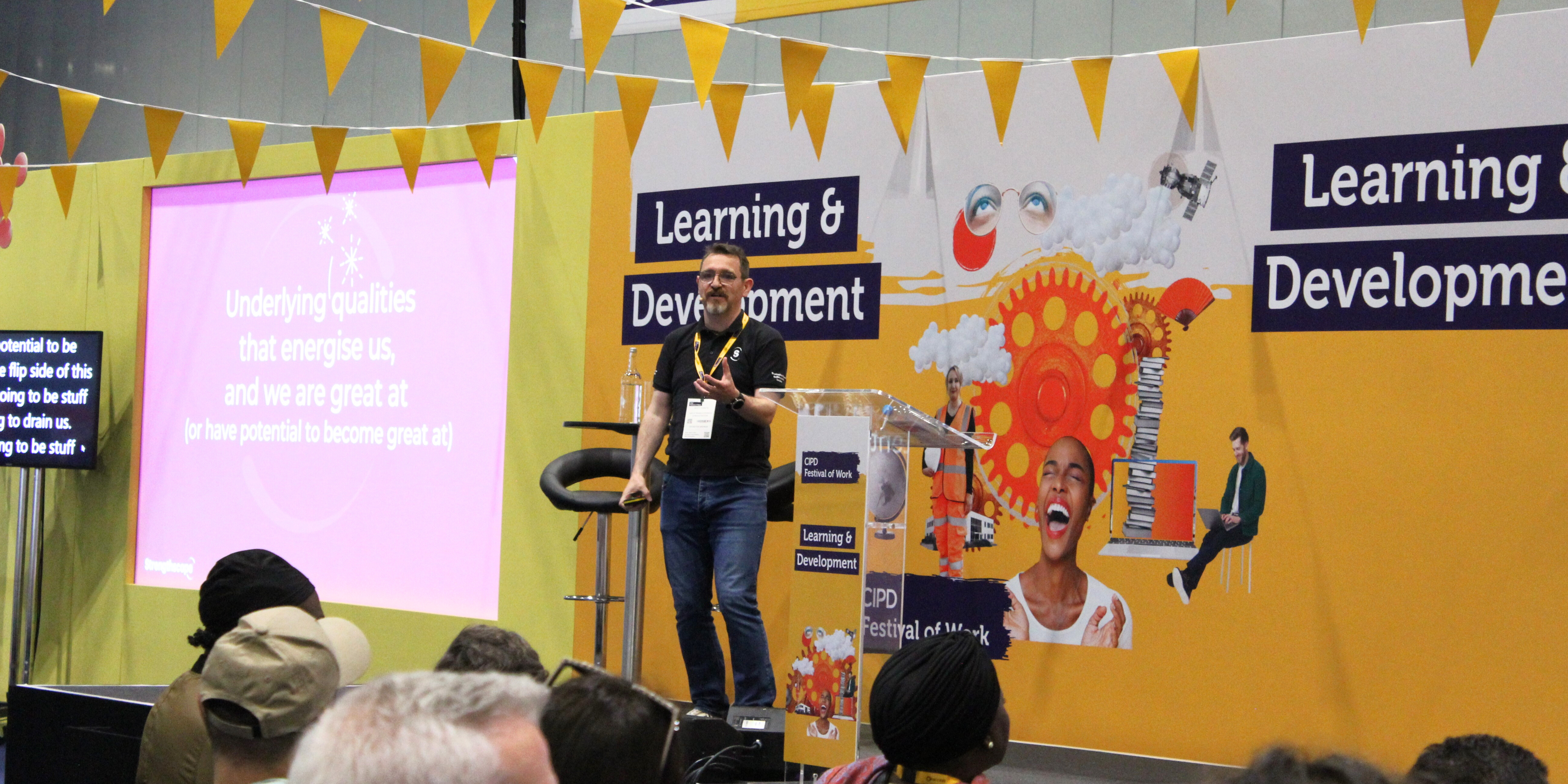Developing the unique strengths of the workforce of the future
How can we build peak-performing teams in AI-driven, remote-first workplaces?
Strengthscope had the fantastic opportunity to attend the CIPD Festival of Work 2024. Our Head of Training & Integration, Scott Christie, delivered a talk at the L&D stage on developing the workforce of the future through strengths.
Scott started his talk sharing the definition of strengths and how they can make a difference in the flow of work every single day. Strengths are underlying qualities that energise us, and we are great at, or have the potential to become great at. We naturally feel in our full state of flow when using our strengths.
People that recognise their strengths deliver better outcomes for themselves, their teams and their organisations.
Here are some of the highlights from our L&D session:
- The impact of AI – How to leverage it to create more time for human development
- Going beyond skills to find fulfilling roles for individual contributors
- Creating a development mindset to allow learning to thrive in the flow of work
The impact of AI – How to leverage it to create more time for human development
- According to an IBM study, 40% of the workforce will need to reskill in the next three years due to the implementation of AI and automation.
- We presented a poll to the audience, asking them to share which skills they think AI could replicate/replace, and below are some of their answers:
- Administration
- Research
- Data analysis
- Data processing
- However, research shows that among the top ‘skills’ required by the workforce of the future are:
- Ability to work effectively in team environments
- Effective communication
- Willingness to be flexible, agile and adaptable to change
- These are not quite traditional competencies that align with every context and personality type. Therefore, to support the workforce of the future, we need to recognise that employees are motivated by meaningful work. They prioritise this over autonomy, equity, flexible work arrangements, and growth opportunities.
Going beyond skills to find fulfilling roles for individual contributors
- Diversity of thought can’t come from lots of the same learned skills and experiences; there have to be different perspectives and experiences, especially with new generations’ views on the world of work.
- It’s imperative to understand that as today’s work environment changes, leadership must also change. 82% of employees say it’s important for their organisation to see them as a person, not just as an employee, so leaders now need to display human-centric leadership, defined as leading with authenticity, empathy and adaptivity. These traits have been listed for some time among the key qualities of great leaders, but they were considered nice to have. Employees today demand them.
- So how can we empower leaders and employees to find more commonality and support each other? By playing to strengths, we can connect to our personal human qualities. This unlocks new levels of authenticity and performance.
Creating a development mindset to allow learning to thrive in the flow of work
- Strengths development does not offer a pass-or-fail option like competency-based training. Strengths are role agnostic. Strengths use is personal and contextual; no two people have the same experiences, relationships, and contexts, so strengths can be agile in application.
- The first step is to build awareness of talents already inherent in the individual and suggest ways they can develop effective use of strengths.
- It’s also important to reframe development from a ‘one and done’ perspective, as lasting, long-term change requires regular reflection and application.
- Finally, it’s essential to have a strong understanding of the culture you’re working in. A growth mindset is needed to create the right environment for strengths to land and scale effectively.








